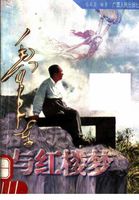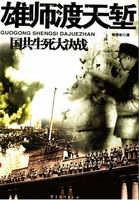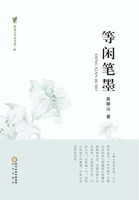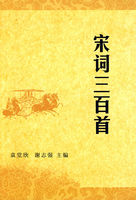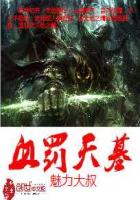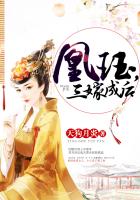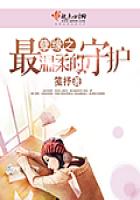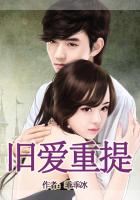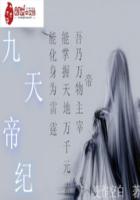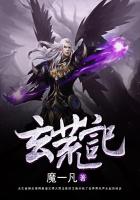1.3 作品赏析
1.3 Appreciation of the Novel
从结构上看,《老人与海》是非常简单的。首先,是梦和行动的交替出现,即桑提亚哥脑子里对往昔的追忆或同海洋生物的对话,与他对海洋生物的挑战必须立即作出的准确反应,达到了平衡。书中还有利用基督教和基督教之前的宗教常见的“神圣的数字”表达时间的顺序;桑提亚哥与马林鱼搏斗了3天;在支撑桅杆时摔倒了7次;杀死了7条鲨鱼;独自一人钓鱼40天而一无所获(40这个数字对圣经数灵学来说当然是十分重要的)。书中还运用了对照的手法(海明威作品中常见的手法)。这里对照的是,那个村子的现实——旅游者“由于无知而目瞪口呆的地方”——和更古远,因而也就更圣洁的如大海那样的环境的真实和高尚。
From the standpoint of structure, The Old Man and the Sea is extremely simple. First, there is thealternation of dream and action (that is, Santiago mental reminiscing or dialogues with the creatures of the sea,set against the immediate demands for precise response to challenge). There is also a time-sequence whichplays on“sacred numbers”common both to Christianity and pre-Christian religions: the struggle with themarlin lasts three days; Santiago falls seven times bearing the mast; he kills seven sharks; he fished alone forforty day unsuccessfully (and the number 40 is, of course, very important in Biblical numerology). There isalso a contrast (common in Hemingway’s work) between the reality of the village—where‘tourists”cometo gape at life without understanding it—and the truth and nobility of more primitive, and therefore holy,environments like the sea.
《老人与海》产生的真正效果取决于它的语言本身那种精确而美妙的连续节奏:那是这样一种节奏,它不能言传,因而就像一首诗的诣趣,或一个舞蹈的动作——好像只是“间接”重述一件事情时给人造成幻想。至于说到海明威在《老人与海》里表现出的那种精确入微的观察、句法结构的简练,最完善的行为动作顺序的衔接,的确是无可挑剔。
The essential effect of The Old Man and the Sea depends upon a measured and dignified cadence oflanguage itself: a rhythm which cannot be paraphrased, and which therefore is—like the substance of a poem,or the movement of a dance—likely to be a mere shadow of the actual substance when recapitulated“secondhand”. To say that Hemingway, in The Old Man and the Sea, perfects the“style”of precise and concreteobservation, the simple declarative periods, the sequence of motion and action which characterized the best ofhis work, is really to say very little indeed.
《老人与海》里的“新东西”——至少可以说是这本书里令人难忘的东西——是在这短短一部小说里,形式和哲学观点似乎都达到了几乎完美的平衡。无论是一段叙说、一个情节还是一个动机,都没有出现首尾衔接不紧凑的现象。就这点而言,这部书足以和一首抒情诗歌相媲美。它以最简单易懂的形式将欧内斯特·海明威的个人见解展示给我们:接受人的最终失败(是年老,而不是死亡),但坚持这种失败可以转变成精神上的胜利。
What is“new”in The Old Man and the Sea—or at least, what is memorable in the book—is thefact that in this short novel both the style and philosophy seem to be in almost perfect equilibrium. There areno“loose ends”of narrative, episode, or motivation, and in this sense the book has been justly compared toa lyric poem. It gives us, in the most lucid and economic form, the personal vision of Ernest Hemingway—a vision which accepts man’s ultimate defeat (old age no less than death), but insists that such defeat can beturned into spiritual victory.
《老人与海》的主题非常重大而深刻,即:如何处理好人与大自然的关系?对待死亡是什么态度或者说人生有什么意义?海明威的生态观是什么?
The themes of The Old Man and the Sea are very important and profound—how to handle therelationships between humans and nature well? What attitude does one have toward one’s death or whatmeaning of life does one think? What is Hemingway’s ecological view?
从小说的第一段起,桑提亚哥就被描绘成与失败进行抗争的形象。他已连续84天一无所获,马上就要超过他自己87天的背运纪录。他那艘小船的船帆就好像是一面象征常败的旗帜,昭示着老人抗争的过程。但是老人从不认输,他决心到别人不敢去的、可能有大鱼的、更远的海域去捕鱼。经过3天惨烈的搏斗后,他捕获到那条巨大的马林鱼,终于没破他那87天的纪录。之后他还要抵御鲨鱼的进攻,保护他的猎获物不被鲨鱼掠食,虽然他清楚地知道他的努力是无济于事的。因为与之较量的是海里的动物,所以我们就认为《老人与海》讲的是人类与自然界抗争的惨烈故事。更准确地说,小说所涉及的是如何处理好人类与自然的关系。
From the very first paragraph, Santiago is characterized as someone struggling against defeat. He hasgone eighty-four days without catching a fish—he will soon pass his own record of eighty-seven days. Almostas a reminder of Santiago’s struggle, the sail of his skiff resembles“the flag of permanent defeat.”But theold man refuses defeat at every turn: he resolves to sail out beyond the other fisherman to where the biggestfish promise to be. He lands the marlin, tying his record of eighty-seven days after a brutal three-day fight,and he continues to ward off sharks from stealing his prey, even though he knows the battle is useless.
Because Santiago is pitted against the creatures of the sea, we choose to view the tale as a chronicle of man’sbattle against the natural world. The novella is, more accurately, about how to handle the relationshipsbetween humans and nature well.
桑提亚哥与周围世界亲如兄弟般的关系不仅局限于他对那只苔莺的态度。他听到了飞鱼跳出水面的声音以及呼呼的抖动声,他把飞鱼看做朋友。他又想到了那些弱小的海燕,它们总是想捕捉飞鱼,但谈何容易啊,他不禁同情起这些小鸟来了。他把大海看做女人,一个野性十足却又情不自禁的女人。他热爱大海,正如男人热爱女人——他是个渔夫,离开了大海怎能生存?湾流富饶的水域走马灯似的出现了一系列小角色,有鸟类,也有兽类。桑提亚哥观察它们,并和它们打招呼。他把一只正在觅鱼的海鸟当做向导,按照这只鸟飞过的方向划动着小船,走得越来越远。很快,老人的一根鱼线绷紧了,他拖上来一条10磅重的金枪鱼。
他大声喊着说那是非常理想的鱼饵。他逐渐养成了自己和自己说话的习惯,何时养成的却记不得了。他想,如果自己自言自语时让别人听到了,那么他们肯定会认为他疯了,虽然他清楚自己很正常。最后,老人发现自己已经走得太远了,已经看不见海岸上的绿色了。那根露出水面、标有100寻深的竿子急遽地浸入水中,桑提亚哥深信拉动鱼线的肯定是条大鱼,他祈祷着,希望那条鱼能咬饵。马林鱼先是摆弄了一会儿,然后吞下鱼饵,并开始带着鱼饵游动,拉动了小船。老人猛劲拉了一下,又拉了一下,但毫无效果。大鱼拖着小船漂流着,离海岸越来越远,桑提亚哥一点儿也看不到陆地的影子了。大鱼拖着小船漂流了整整一天,这期间,老人一直用后背撑着鱼线,用双手拉紧鱼线,随时准备必要时把鱼线放松。这样的搏斗又持续了一整夜,大鱼继续拖着小船漂流着。哈瓦那灯火的光亮逐渐消失了,这说明小船已漂进了以前从未到过的最远的海域。老人一次又一次地想着,要是马诺林能和他在一起该有多好啊。当看见两只海豚在水中戏水时,老人开始同情起他的猎物,并把它看做是自己的兄弟。他回想起他曾经捕获过一条马林鱼时的情形:那是一对马林鱼中的雌鱼,雄鱼让雌鱼吃了鱼饵,之后雄鱼一直不离船左右,似乎在哀悼雌鱼。虽然老人回忆起这件事时很伤感,但他的决心却没有丝毫的减退。马林鱼继续往深水处游着,老人“即使走到天边”也要跟它去,捕到它。一只疲惫的小苔莺落在了小船的尾部,又在桑提亚哥的头顶周围拍动着翅膀盘旋,然后又落在了被那条大鱼拉得紧绷绷的鱼线上。老人怀疑那只苔莺是头一次离巢,对于一旦接近陆地就会遇到老鹰的危险一无所知。明知苔莺不懂他的话,老人还是告诉苔莺,让它待在他那儿,等歇足了再往海边飞。正在这时,大马林鱼一阵疾冲,差一点儿把老人拉到海里。小苔莺飞走了。桑提亚哥注意到,他的手被鱼线勒割得鲜血直流。老人清楚,他必须保存体力,所以就强迫自己吃前一天捕获到的、原打算做鱼饵用的金枪鱼。他吃鱼的时候,产生一种强烈的愿望,想喂一喂那条马林鱼,像对待兄弟那样。一群野鸭飞过他的头顶,使他明白了,在海上是不可能孤单的。倾斜的鱼线开始起变化,它告诉老人大马林鱼正在接近水面。突然,大鱼以极其优美的姿势跃出水面,桑提亚哥看到,那是他平生所见过最大的鱼,比他的那只小船还要长两英尺。在大马林鱼平静时,老人决定“休息”一下,说是休息,实际上就是不再用双手用力,而是把鱼线缠绕在背上,用身体的力量抵御大鱼的拉力。
他剖开了以前捕获的那只海豚,发现海豚的肚子里有两条飞鱼。在寒冷的夜晚,老人吃了半片海豚肉和一条飞鱼。虽然桑提亚哥与大马林鱼是对手,但同时他们还是伙伴、是盟友,并且从某种意义上讲,是一根绳上拴的两只蚂蚱。大马林鱼猛然拉动鱼线,惊醒了桑提亚哥。
鱼一次次跃出水面,把桑提亚哥拉倒在船头,脸扑到了海豚肉上。鱼线被飞快地拉出,老人用后背和双手撑拉着。他的双手,被鱼线勒割得血肉模糊,看上去就像生肉一样。老人想,大鱼是要折磨死他,并由此而对大鱼敬羡不已,说道:“谁杀死谁都无所谓。”最后,老人终于把大鱼拉到了船边,并把鱼叉刺进了它的身体。大鱼死的时候,侧着身,亮灿灿地,极优美地浮出水面,与活着的时候一样。它再沉入水下时,鲜血染红了海水。
The brotherhood between Santiago and the surrounding world extends beyond the warbler. He hears theleaps and whirs of the flying fish, which he considers to be his friends, and thinks with sympathy of the small,frail birds that try to catch them. He thinks of the sea as a woman whose wild behavior is beyond her control.
He loves the sea just as a man loves a woman—as a fisherman, leaving the sea, how can he live on? Therich waters of the Gulf Stream provide a revolving cast of bit players—birds and beasts—that the old manobserves and greets. Rowing farther and farther out, Santiago follows the seabird that is hunting for fish, usingit as a guide. Soon, one of the old man’s lines goes taut. He pulls up a ten-pound tuna, which, he says outloud, will make a lovely piece of bait. He wonders when he developed the habit of talking to himself but doesnot remember. He thinks that if the other fishermen heard him talking, they would think him crazy, althoughhe knows he isn’t. Eventually, the old man realizes that he has sailed so far out that he can no longer see thegreen of the shore. When the projecting stick that marks the top of the hundred-fathom line dips sharply,Santiago is sure that the fish tugging on the line is of a considerable size, and he prays that it will take thebait. The marlin plays with the bait for a while, and when it does finally take the bait, it starts to move with it,pulling the boat. The old man gives a mighty pull, then another, but he gains nothing. The fish drags the skifffarther into the sea. No land at all is visible to Santiago now. All day the fish pulls the boat as the old manbraces the line with his back and holds it taut in his hands, ready to give more line if necessary. The strugglegoes on all night, as the fish continues to pull the boat. The glow given off by the lights of Havana graduallyfades, signifying that the boat is the farthest from shore it has been so far. Over and over, the old man wisheshe had the boy with him. When he sees two porpoises playing in the water, Santiago begins to pity his quarry,to consider it a brother. He thinks back to the time that he caught one of a pair of marlin: the male fish let thefemale take the bait, then he stayed by the boat, as though in mourning. Although the memory makes himsad, Santiago’s determination is unchecked: as the marlin swims out, the old man goes“beyond all peoplein the world”to find him. A small, tired warbler lands on the stern of the skiff, flutters around Santiago’shead, then perches on the taut fishing line that links the old man to the big fish. The old man suspects that itis the warbler’s first trip, and that it knows nothing of the hawks that will meet the warblers as it nears land.
Knowing that the warbler cannot understand him, the old man tells the bird to stay and rest up before headingtoward shore. Just then the marlin surges, nearly pulling Santiago overboard, and the bird departs. Santiagonotices that his hand is bleeding from where the line has cut it. Aware that he will need to keep his strength,the old man makes himself eat the tuna he caught the day before, which he had expected to use as bait. Ashe eats, he feels a brotherly desire to feed the marlin too. A flight of ducks passes overhead, and he realizesthat it is impossible for a man to be alone on the sea. The slant of the fishing line changes, indicating to theold fisherman that the fish is approaching the surface. Suddenly, the fish leaps magnificently into the air, andSantiago sees that it is bigger than any he has ever witnessed; it is two feet longer than the skiff itself. Whilethe marlin is quiet, he decides to“rest”, which really just means putting down his hands and letting theline go across his back, instead of using his own strength to resist his opponent. He butchers the dolphin hecaught earlier and finds two flying fish in its belly. In the chilling night, he eats half of a fillet of dolphin meatand one of the flying fish. Although they are opponents, Santiago and the marlin are also partners, allies, and,in a sense, doubles. The marlin wakes Santiago by jerking the line. The fish jumps out of the water again andagain, and Santiago is thrown into the bow of the skiff, facedown in his dolphin meat. The line feeds out fast,and the old man brakes against it with his back and hands. His hands are so cut up that they resemble rawmeat. The old man thinks that the fish is killing him, and admires him for it, saying,“I do not care who killswho.”Eventually, he pulls the fish onto its side by the boat and plunges his harpoon into it. The fish lurchesout of the water, brilliantly and beautifully alive as it dies. When it falls back into the water, its blood stainsthe waves.
从上述摘自文本的综述可见《老人与海》的主人公桑提亚哥热爱大海、鱼类、鸟类和兽类,热爱大自然,把大自然看成是自己的朋友,与大自然友好和谐地相处。
From what is taken from the text of The Old Man and the Sea, we can see the hero of the novel lovesthe sea, fishes, birds and beasts. He loves nature and considers nature his friend. He gets along with naturefriendly and harmoniously.
桑提亚哥,似乎还有海明威,他们觉得在这个世界上,弱肉强食,无处不有,任何生物都逃脱不掉那场不可避免的导致其死亡的生死搏斗。我们的年龄要增长,身体会衰弱,最后要死亡,最终要失去以我们巨大的牺牲为代价(有时以别人的牺牲为代价)所取得的一切。
这是任何人都不能超越的自然法则。在海明威所描绘的世界中,死亡是不可避免的,而最优秀的人(或者最优秀的动物)是不会坐以待毙的。因此,桑提亚哥和大马林鱼必定会拼争至死,就如同饥饿的鲨鱼肯定会把老人的捕获物掠食得只剩骨架一样。桑提亚哥按他对世界的理解活着,他认为:“人不是为了失败而生的,一个人可以被毁灭,但绝不能被打败。”至关重要的,是个人面对最终必然死亡,即不可避免的失败时所采取的态度。恰恰因为失败是如此不可避免,生命的意义也就既不存在于“成功”,也不存在于“失败”,而只存在于斗争,也就是个人只能凭借决意牺牲的精神,高傲和坚忍不拔的气质,升华成具有男子汉气概、令人敬慕和崇拜的人物。
Santiago, and seemingly Hemingway, feel that the world is filled with predators, and no livingthing can escape the inevitable struggle that will lead to its death. We age, weaken, and die, and finallylose all that we have gained at great sacrifice to ourselves (or sometimes, to others). This is a naturallaw that no one can transcend. In Hemingway’s portrait of the world, death is inevitable, but the bestmen (and animals) will nonetheless refuse to give in to its power. Accordingly, Santiago and the marlinwill struggle to the death, just as hungry sharks will lay waste to an old man’s trophy catch. Santiagolives according to his own observation:“Man is not made for defeat, a man can be destroyed but notdefeated.”What matters is the manner in which the individual faces the fact of his own mortality, his owninevitable“defeat”. And precisely because the defeat is so inevitable, the meaning of life is not to be foundin“success”or“failure”, but rather in the struggle itself, the form which the individual—alone in hiskilled sacrifice, pride, and endurance—rises to Divinity-in-Manhood.
海明威的生态观通过他的主人公桑提亚哥体现出来。他为读者塑造了一个品行优秀、生活俭朴的楷模。桑提亚哥战胜了这个世界上的一切邪恶势力,如饥饿、贫穷、同行们的蔑视,其方法是忍耐。书中描写了老人的简陋小屋:棚屋是用王棕——当地人称做棕榈的坚韧苞壳盖成的;屋里除了几样必不可缺的生活必需品——一张床、一张桌子、一把椅子以及一方烧炭起火做饭的泥地外,一无所有。老人赤着双脚。他几乎不存在吃饭的习惯,当他饥饿时或需要保持体力时,他就吃半片海豚肉或一条飞鱼或一片金枪鱼或其他什么的。他总是生着把它们吃了。他拒绝求助上帝作为取胜的手段。他拒绝得如此坚决,以至他从不使用宗教的专用语。他把宗教专用的词语当成咒语。尽管他在极端痛苦时也呼喊上帝,可他认为,人们相信“原罪”是精神不正常。的确,“原罪”与他信奉的那种宗教仪式,即表现神圣的男子汉气概的宗教仪式,毫不相干。在他的宗教仪式中,男人的真正的祭坛,就是他自己肉体的祭坛。桑提亚哥的人生哲学确实是非基督教的人本主义,或者说是异教的哲学。这似乎与海明威的“原始主义”——一种价值体系,有很大的关系。在那种价值体系中,“对比人为的社会……原始社会的环境,起着施予者、力量和纯真的作用。”在他“冰山理论”引导下,我们读者不难看出桑提亚哥的简朴自然生活与富人们的奢华并不健康的生活间的鲜明对照,桑提亚哥充实的精神生活与那些精神空虚而物质富足的人的生活之间的鲜明对照,和原始社会环境中的价值体系与人为社会中的价值体系间的鲜明对照。我们读者也不难理解桑提亚哥的简朴生活不会产生什么垃圾和污染,而富人们的奢华生活会产生如塑料包装袋、家庭日常废物、各种废酒瓶、抽烟的烟雾和烟灰等垃圾并严重污染环境,直接威胁人们的健康和安全,从而唤醒读者和公众的环保意识。
Hemingway’s ecological view is represented by his hero Santiago. He provides the reader with a modelof good, simple living: Santiago transcends the evils of the world—hunger, poverty, the contempt of his fellowmen—by enduring them. The deions of the old man’s crude hut: The shack was made of the toughbudshields of the royal palm which are called guano and it was furnished with nothing more than the barestnecessities: a bed, a table, one chair, and a place on the dirt floor to cook with charcoal. The old man wasbarefooted. He had almost nonexistent eating habits. Whenever he was hungry or would need to keep hisstrength, he would eat half of a fillet of dolphin meat or one of the flying fish or a piece of tuna or somethingelse. He always eats them raw. So complete is Santiago’s refusal to“turn to God”as a kind of mechanism-for-victory, that he rejects the very religious terminology he uses as a kind of verbal incantation; for whilehe calls on Christian Divinity in the heights (or depths) of his pain, he also refuses to consider the matterof“sin”as anything but a distraction.“Sin,”indeed, for Santiago, is simply irrelevant to the only ritualhe acknowledges: the ritual of Sacred Manhood in which the only true altar for a man is the altar of his ownflesh. The fact that Santiago’s vision is essentially non-Christian humanism, or pagan, would also seem to bevery much related to the“primitivism”of Hemingway himself: that is, a value-system in which“primitivescenes, as contrasted to man-made societies... play the role of giver and strength and purity.”Under theguidance of his“iceberg theory”, it is not difficult for us readers to see the striking contrasts betweenSantiago’s simple and natural life and the rich people’s luxurious and unhealthy life, between Santiago’s fullspiritual life and the life of those who are barren spiritually but rich materially and between the value-systemin the“primitive scenes”and the value-system in the“man-made societies”. It is also not difficult for usreaders to understand that Santiago’s simple and natural life produces little rubbish and pollution while therich people’s luxurious life produces all sorts of rubbish—plastic bags, household waste, all kinds of wastebeer or wine battles, cigar or cigarette smoke and ash etc which pollute the environment seriously and directlythreaten the health and safety of people. Consequently, it may arouse readers’ and the public environmentalawareness.
桑提亚哥敬畏各种生物的生命正如他自己的生命,并平等对待人类和其他各种生物。
老人对他的徒弟马诺林非常和蔼、友好。当马诺林问他:“在露台饭馆请你喝杯啤酒,然后再把那些东西拿回家行吗?”他回答说:“干吗不行呢?两个渔夫一起喝一杯。”完全是平等的关系。如此的平等关系也表现在桑提亚哥与马林鱼之间。“鱼呀,你简直在要我的命呀!老人心里想道。不过你有权这样做。我从来没有见过比你更大、更漂亮,或者更沉着、更高贵的东西。兄弟,来吧,把我弄死吧,我不在乎是谁杀死了谁。”老人的这种意识诠释了小说中有关自然界的道理。正如桑提亚哥与大马林鱼之间所进行的那场让人精疲力竭、近乎于没完没了的搏斗所展示的那样,他所处的世界是一个生与死相依相伴,且有爱慕相随的世界。更具体地说,桑提亚哥是个渔夫,代表人类生命,而马林鱼是条大鱼,代表非人类生命,他们都共同地靠鱼生活,表现出人类生命和非人类生命间的互相依存性。他们不是敌人,只是对手;他们都是为了各自的生存而相互拼搏,正如自然中的豹子、老虎和狮子为了生存而捕杀其他动物为食一样。这正是自然界的真实存在。这就暗示了生命循环的自然特征和大自然中两种对抗力量,如生与死、爱与恨、毁灭与再生之间的和谐关系。
Santiago reveres the life of all living things just as his own and treats human beings and other livingthings equally. The old man is very kind and friendly to his apprentice Manuolin. When Manuolin askedhim,“Can I offer you a beer on the Terrace and then we’ll take the stuff home?”“Why not?”hereplied.“Between fishermen.”Just an equal relationship between friends. Such an equal relationship is alsoshown between Santiago and the marlin.“You are killing me, fish, the old man thought. But you have a rightto. Never have I seen a greater, or more beautiful, or a calmer or more noble thing than you, brother. Come onand kill me. I do not care who kills who.”This realization speaks to the novella’s theory of the natural world.
As Santiago’s exhausting and near-endless battle with the marlin shows, his is a world in which life and deathgo hand in loving hand. More concretely speaking, Santiago is a fisherman, representing human life while themarlin is a big fish, representing non-human life, but they live on fish commonly and show the interdependentnature of human and non-human life; they are not enemies, but only opponents; they fight against each otherso as to survive respectively just as leopards, tigers and lions in nature catch and kill other animals in order tolive on. This is the real existence of the natural world. It also suggests the circular nature of life and a harmonybetween the opposing forces—life and death, love and hate, destruction and regeneration—of nature.
桑提亚哥杀死马林鱼并不单纯是为了得到食物,而是出于自尊和爱。嗅到了马林鱼血的味道,各种鲨鱼相继来到,咬去了马林鱼的所有肉,只剩下骨架和小船缚系在一起。桑提亚哥意识到他和大马林鱼之间所进行的那场搏斗算是白费了,所得到的一切很快就会完全失去。他再次后悔了,后悔不该杀死大马林鱼。他向那死了的马林鱼道歉,说当初不该走得那么远,既毁了自己,也毁了大马林鱼。虽说希望自己能走好运,但桑提亚哥相信由于自己走得太远而葬送了自己的好运。“它们(鲨鱼)打败了我,马诺林,”他告诉他徒弟说,“它们(鲨鱼)确实打败了我。”鲨鱼、马林鱼和大海都是自然的组成部分,代表着自然。老人与大鱼搏斗的这种离奇的结局无疑让人想到主题的重要问题,即:我们人类最重要的任务就是要处理好与大自然的关系。恩格斯早已经警告过我们,不要过分陶醉于我们对自然界的胜利。一百多年来的历史事实,日益证明了恩格斯警告的正确。我们应该把大自然——大海、动物、植物等看成是自己的伙伴和朋友,而不是征服的对象。只有这样,人类才会有光明美妙的前途。
Santiago killed the marlin not only simply for food but also out of pride and love. Having smelled themarlin’s blood, all sorts of sharks arrive one after another. They have taken all the meat of the marlin andonly the skeleton of the fish left, still tied to the skiff. Santiago realizes that his struggle with the marlinwas for nothing; all will soon be lost. Again, he wishes that he hadn’t killed the marlin. He apologizes tothe dead marlin for having gone out so far, saying it did neither of them any good. Although he hopes to belucky, Santiago believes that he“violated his luck”when he sailed too far out.“They (sharks) beat me,Manuolin,”he told his apprentice.“They (sharks) truly beat me.”Sharks, the marlin and the sea arecomponents of Nature, representing Nature. The fantastic final stage of the old man’s fight with the fish bringsthe thematic issue to the fore. That is: The most important task for humanity is to handle the relationshipsbetween us and nature well. Friedrich Engels warned us long ago that we shouldn’t be intoxicated with ourvictories over nature. For every victory we won, nature has retaliated. The history of the past 100 years or sohas proved his warning to be correct and accurate. We humans should look upon nature—the sea, animals,plants, etc. as our partners and friends, not targets for conquering. Only then can humanity have a bright andbeautiful future.

